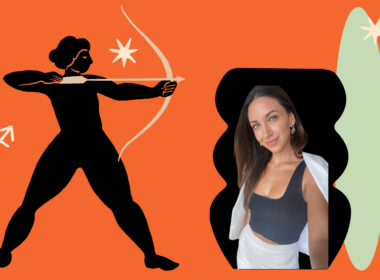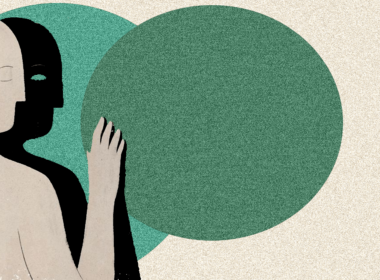Rythm is on a mission to help humans connect better with their parts and partners. For our blog series “Humans of Rythm”, we interview founders, thought leaders, and experts in the sexual wellness space and share their responses with you.
Raffaello Manacorda is an international Tantra teacher and practitioner. He has been practicing Tantra for more than 15 years and has undergone intensive training in several styles of Yoga. After completing an MA in Philosophy, Raffaello decided to spend more than twelve years living in alternative communities and experimenting with radically alternative lifestyles.
It was in these wild years that he first encountered Tantra, the “rebel way to Spirit”. This encounter developed into a life-long practice, first on a solo journey, then studying Tantra and Yoga in some of the best worldwide schools. Raffaello serves as lead faculty in ISTA, the International School of Temple Arts, and teaches and lectures worldwide. He is currently enrolled in a Ph.D. program in Wisdom Studies with Ubiquity University (California).
Raffaello is the co-creator of the ISTA Practitioner Training (PT), ISTA’s program for coaches and practitioners in the field of conscious sexuality.
Read below to learn more about Raffaello Manacorda’s story.
Where were you born, where did you grow up, and how was sex (the act) perceived in your culture/household?
I am Italian, I grew up in Rome up until the age of 24. I grew up in a liberal minded family that was not sex negative per se. However, in my household there was very little talk of sex. I did enjoy more freedom than my peers of my own age. I could bring people home, I could have sleepovers, pretty easily. There wasn’t a sense of shame around sex. I’m very grateful for that. But, I also didn’t receive a lot of education or good deep information about sex. That was my household.
Even though Rome is a big city, the conceptions around sexuality and relationships are influenced by centuries of religion, prevalent gender stereotypes and gender roles. So I would say the whole field of relationship and sexuality outside of my immediate family was challenging. There was no sexual education in my school, and a lot of misinformation and stereotypes that I had to grapple with for sure.
What does the word conscious sexuality mean to you?
Conscious sexuality is bringing real consciousness to sexuality. And consciousness means looking at something with an open heart without prejudice, without judgment, without an agenda, to make it wrong or to make it right, just accepting what is. So, for instance, if someone comes to our training and says I feel attracted to 15 people in this room. We wouldn’t meet it with a judgment, but encourage exploration of your feelings. One thing that we observed a lot and not just us, but many people that work in a similar field is that as soon as you allow a feeling and emotion, even a fantasy to be fully felt, then it stops haunting you and stops being, kind of secretly kept somewhere.
How do you define sexuality? What does it mean to you?
I’m not a super fan of definitions because they always need to rest on other words and then it goes into an infinite loop. But basically, I see sexuality as one of the expressions of the basic nature of polarity in our existence which it’s not the ultimate truth but sometimes life shows up as you and me this and that, yin and up and down and when life shows up as this to sort of different flavors than the mixing of those flavors, can be very interesting, very fascinating and that’s sexuality. Whether it’s two people making love or whether it’s the moon orbiting around the earth or whether it’s hot and cold coming together and creating steam and a lot of explosive energy. I think that’s the nature of sexuality and it’s a beautiful phenomenon.
How did you choose your profession and why did you choose to pursue it?
I didn’t really choose it, it chose me. So, one thing led to another, at first until I was 30- something I was into a very different lifestyle that had to do with political activism and grassroots activism. Then I started to look inside of myself and my own issues and I found that many of them were related to sexuality and relationships. So I got into Tantra for my own benefit really not because I wanted to teach anybody, but after a few years of intensive practice that led to a position facilitating or being an instructor in tantra in my own workshops, and then eventually with ISTA but it was never a plan, it chose me.
What were you doing before ISTA?
So before ISTA I was in my tantra phase. I was studying at a school and also teaching at a school and doing my own workshops. But as far as a job that paid for my living, I was actually in IT, information technology. So something very different.
What really inspires you about the industry or category that you’re in? As you mentioned, it chose you, what was that gravitational pull?
I consider myself as being in the field of conscious sexuality, but beyond that I am in the field of embodied wisdom and embodied spirituality. What fascinates me is the possibility of addressing the whole of the human experience from the intellectual to the emotional to the physical to the sexual to the spiritual altogether without having to partition things and to divide a human into parts or into different categories. That’s what excites me and why I’m here now. Tomorrow, I might be approaching it from a totally different angle, but as long as it’s a holistic conception of the human being I’m in.
Can you walk us through, what is ISTA and what is their approach as it pertains to the holistic human being?
ISTA (The International School of Temple Arts) is a co-creation of many different beings across time. It’s very difficult to give a precise identity besides maybe looking at it in a certain moment of its evolution. Right now in 2023, ISTA is definitely one of the major players in the field of embodied spirituality and conscious sexuality. It is a school, a community, a group of people that at their heart value, address and welcome the human being both in spiritual and sexual dimensions.
These are just labels by the way, but they’re useful labels because usually they are separated. When you go to a church or to a mosque or to a synagogue, you’re not supposed to be sexual in any way. And when you go to a sex positive party, you’re not supposed to pray and sing hallelujahs. So what if we bring these two together? Just because they are together within us and in our human experience. Most of us can access both of those realms separately. But what happens when we bring them together and make space for the emotional nature of our being. That’s what ISTA tries to do with very simple teachings. There’s nothing too complicated about it. It’s more about the field of welcoming and permission that it creates as well as the capacity to really touch all these points that I was referring to of sexuality, spirituality, and the embodiedness of life, without excluding any of them.
ISTA is also in the process of publishing more publicly its set of core values. So this will happen at some point and that will be a clear more tabulated answer to your question, but that was my transmission more from a leading experience and an embodied experience.
Also ISTA is a community without a central leader or Guru, without a pyramid hierarchy, which is something that you will find very often in spiritual organizations, so in this sense it is way more democratic and horizontal.
If I join as a member, what can I expect to receive?
Yeah, so there is no membership. First of all, this is really, really important to understand. The model of ISTA is a facilitated experience that anyone can join without having to become a member or without having to then subscribe to continuing their membership.
So, these are self-contained week-long journeys. And what can people expect? A combination of things. It’s a group journey together with a team of facilitators. So in that sense, similar to a yoga retreat or a meditation retreat but it’s different because here it’s a sex positive space, where the body and emotions are welcome. A lot of things that are in a meditation retreat, you would tend to want to leave at the door are actually welcomed here. That includes dance, movement, and tools to express our emotions in a healthier, safer way. That’s a big point because mostly in spiritual circles there is an understanding that emotions are in the way of growth and in the way of becoming a more mature human being, and we see it differently. So, that’s the entry point of ISTA, and then there’s more, but I would say that is what someone can expect from an experience like this.
Want to increase connection with yourself and your partner? Check out In Tune, our card game for couples by Therapists.
Written by: Rythm







